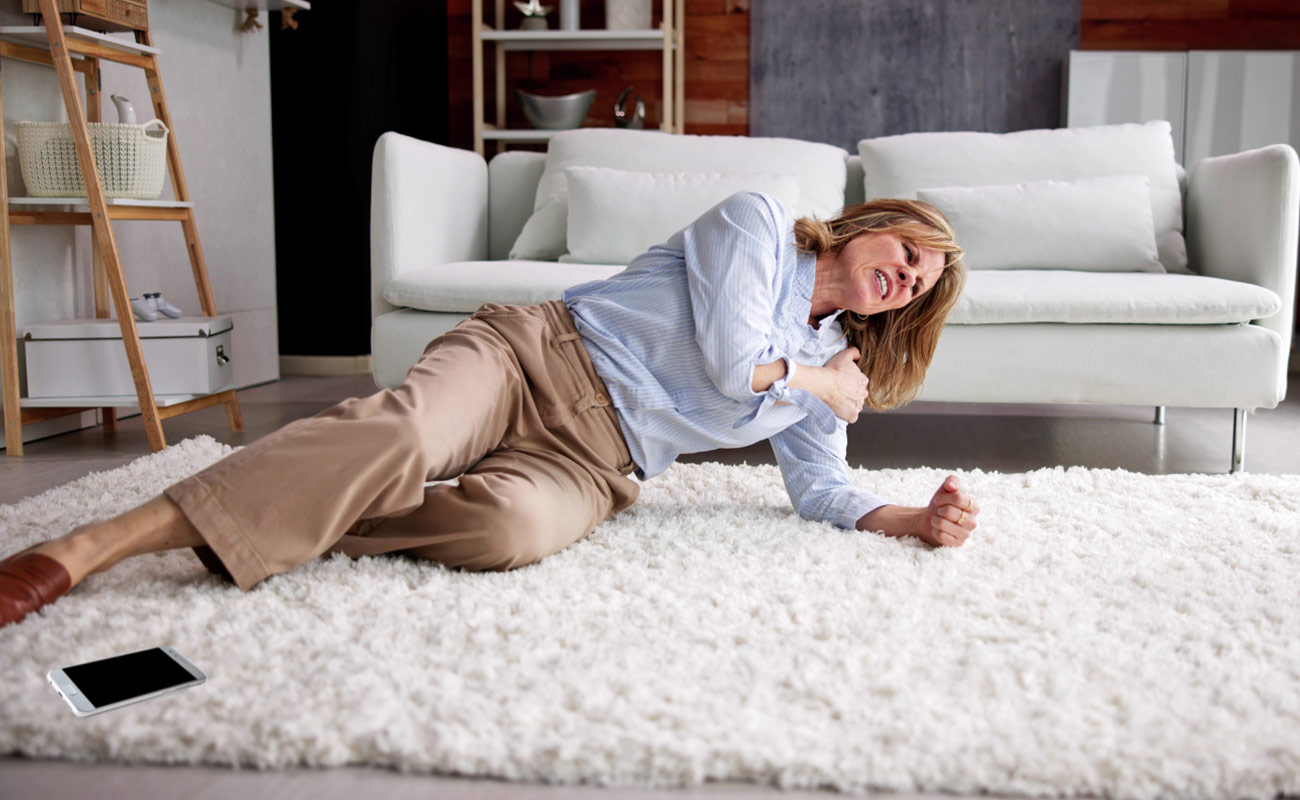Solo Agers’ Tips for Staying Safe in a Medical Crisis

As a Solo Ager, preparing for the unexpected is crucial. Falls and medical emergencies can happen at any time. Without a spouse, partner, or nearby family, these situations can be even more challenging. Fortunately, there are practical ways to protect yourself and ensure help is just a call away. Here are six ways to plan in advance for a medical emergency when no one is around to help.
Invest in a Personal Emergency Response System (PERS)
A PERS device can be worn around the neck, wrist, or even as a clip-on, allowing you to contact emergency services immediately after a fall or other emergency. Some systems now include automatic fall detection and GPS tracking, ensuring help is on the way even if you cannot speak. Many services have monthly plans, so review options to find one that best fits your needs and lifestyle.
Keep a Digital Health Profile
A digital health profile includes your medical history, current medications, allergies, emergency contacts, and physician information. You can store this information on your smartphone, use a health app, or create an ICE (In Case of Emergency) folder on your device. This way, first responders can access critical information quickly if you are unable to communicate.
Set Up a Check-In System with Neighbors or Friends
Consider arranging specific weekday or weekly check-in with neighbors, friends, or fellow Solo Agers. A simple text, call, or even a short email exchange can be reassuring and helpful. Connect with the Solo Agers Connect group on Facebook. The link is at the end of this article. Building community like this can help you create your “check-in” pals. You might also find a person in this group to be a call buddy for that weekly safety check-in.
Install Home Safety Devices
Safety measures in the home can significantly reduce the risk of falls. Grab bars in bathrooms, non-slip mats, good lighting, and handrails are small but essential additions that make it easier to navigate safely. Additionally, motion-sensor lighting can reduce the chances of nighttime falls.
Create a Comprehensive Emergency Contact List
List out emergency contacts such as neighbors, friends, primary care physicians, and a lawyer if you have one. Be sure to provide copies of this list to those on it and keep it easily accessible at home. Posting it in a prominent place, like the refrigerator, is a good idea. This list can help responders get in touch with people who know your medical history and can make important decisions on your behalf.
Consider a Medical Power of Attorney
If you face an unexpected health crisis, having a trusted person to make medical decisions is invaluable. A medical power of attorney allows you to designate someone to speak on your behalf in medical situations where you are unable to. For Solo Agers, this could be a close friend, a trusted advisor, a professional advocate, or a pastor.
Peace of Mind
Preparing in advance for a fall or medical emergency can provide you peace of mind and ensure that help is available even if no one is physically nearby. With the right tools, connections, and planning, you can live confidently, knowing that you have taken steps to safeguard your health and independence.
Help us Build Our Solo Agers Community!
SoloAgersConnect.com is a new online hub for solo agers and elder orphans to easily locate the services and information they need and connect with similar people to build community and develop friendships.
If you found this article helpful, please sign up to receive the newsletter !
Be sure to find us on Facebook and join the Solo Agers Connect group. Let’s grow our community, share information and resources, and build community and friendships.
